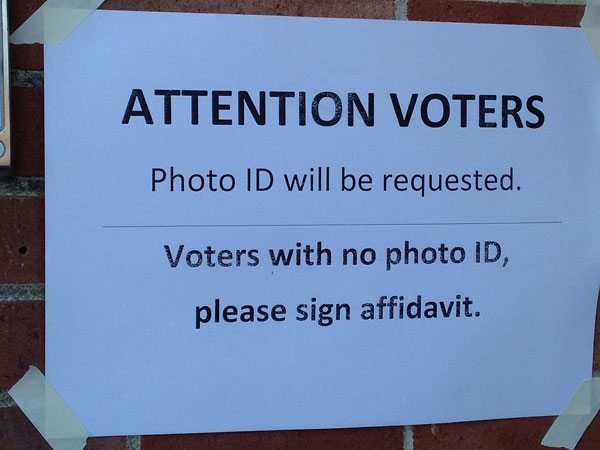
October 9, 2017; Charlotte Observer
President Trump has claimed time and again that between 3 and 5 million voters cast illegal ballots in the 2016 election, causing him to lose the popular vote to Hillary Clinton. Research has not supported his claims; indeed, voter fraud has been found to be virtually nonexistent. The national Advisory Commission on Election Integrity, appointed by the president, has yet to find any evidence of widespread voter fraud.
With all of these claims swirling about, a North Carolina organization sympathetic to Trump has raised questions as to why their current district attorney will not prosecute the two cases of voter fraud that they have uncovered. It should be noted that District Attorney Andrew Murray has been nominated by Trump to become a US Attorney. Based on Murray’s refusal to prosecute voter fraud cases, this appointment is now being opposed by the Voter Integrity Project of North Carolina, which aligns with the president on his claims of rampant voter fraud.
That’s the crux of the conflict: At a time when the current administration is pursuing ways to document voter fraud, an administration nominee is saying this is not worth his office’s time and effort—and a nonprofit organization is saying it is. (The two cases being pursued are not from the 2016 election, but date back to 2012.)
Sign up for our free newsletters
Subscribe to NPQ's newsletters to have our top stories delivered directly to your inbox.
By signing up, you agree to our privacy policy and terms of use, and to receive messages from NPQ and our partners.
A statement from Murray’s office says, “This office prosecutes crimes of every level every day. But prosecuting people when sufficient evidence does not exist simply for the sake of media attention to the Voter Integrity Project’s cause…is simply wrong and unjust. This office does not—and will not—operate that way.” Countering this, the Voter Integrity Project is laser-focused on pursuing the issue of voter fraud and believes that all cases found should be prosecuted to the fullest extent of the law.
“If President Trump is serious about fighting vote fraud, then he should withdraw Andrew Murray’s nomination,” said Jay DeLancy, director of the Voter Integrity Project. “Murray did not prosecute interstate double voting as the DA, so his being US Attorney would be a disaster.”
Even in the face of the Trump administration’s efforts to confirm this alleged rampant voter fraud, it seems the states aren’t spending a lot of time pursuing actual cases. North Carolina may be the poster child for this. A report from the N.C. Board of Elections found that 508 ineligible ballots were cast statewide in the 2016 election—out of 4.8 million votes overall. Most of these illicit votes were submitted by felons serving active sentences. Groups like the Voter Integrity Project believe that these cases should be prosecuted and that they will serve as a platform for the organization’s goal of a photo ID law so voters will have to prove who they are before they are allowed to vote. The Voter Integrity Project disavows any link between voter ID laws and the disenfranchisement of poor and minority voters and, like the president, believes there is much more fraud to be pursued.
This back-and-forth reflects the polarizing national debate over the veracity of the ballot, with different sides arguing whether a problem even exists. As the efforts of groups such as the Voter Integrity Project and those of the national Advisory Commission on Election Integrity move forward, we can expect more questions raised from both sides in how time is best spent.—Carole Levine












